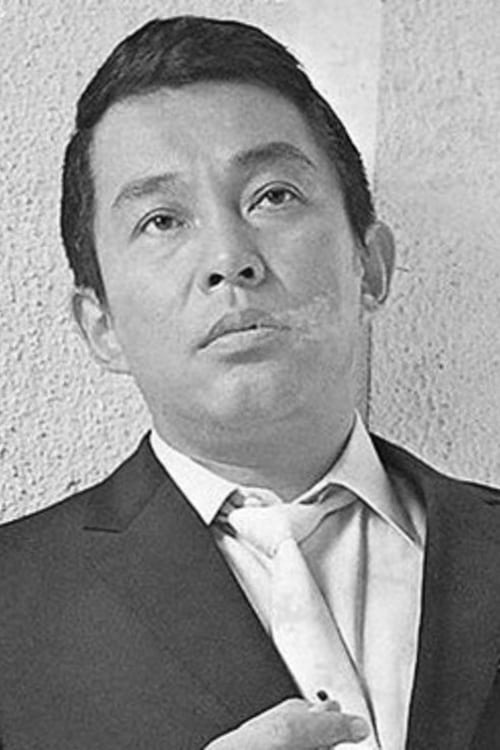Noboru Andô
Рождение : 1926-05-24, Tokyo, Tokyo Prefecture, Japan
Смерть : 2015-12-16
История
Noboru Ando (Japanese: 安藤 昇, Hepburn: Andō Noboru, 24 May 1926 – 16 December 2015) was a Japanese actor, writer and former yakuza. He is known for utilizing his experiences as a criminal in his many roles in yakuza films. He had a large knife scar on his left cheek, the result of a brawl with a Korean gangster as a young man.[1]

Himself
The history of the Yakuza Eiga at the TOEI studio is roughly outlined. Real Yakuza and also their connections to the movie business are discussed, and many important actors and directors of the genres are interviewed. Former real yakuza boss turned actor Noboru Ando, Takashi Miike, Sonny Chiba and many more get a chance to speak.

Original Story
Biopic of yakuza Noboru Ando, based on his autobiography.

Biopic of yakuza Noboru Ando, based on his autobiography.

Self in the present day / Narrator
Former yakuza gang boss Noboru Ando reminisces about old partner in crime Kei Hanagata.

Producer
Former yakuza gang boss Noboru Ando reminisces about old partner in crime Kei Hanagata.

Direct to video crime film.

Novel
“Gunro no keifu” is known as “Tale of a Scarface.” It follows the life of Kumoro, a yakuza member, who recently is released from prison after serving 14 years for his Family. Upon his return he finds the various yakuza syndicates on the brink of war. Kumoro is, at first, removed from the dealings of the families by his Boss, but slowly he is drawn back into his old ways.

Producer
The lives of a young yakuza and his girlfriend.

Producer

Ryo, a young former banker, gets beaten up over a debt from gambling. A yakuza boss saves him, and Ryo decides to train to become a yakuza under him.
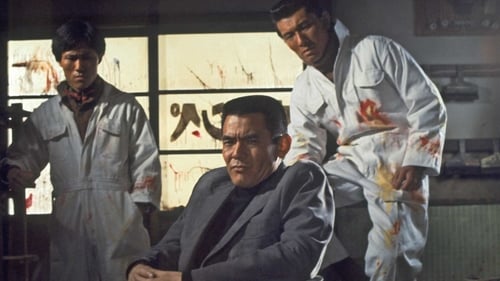
Shozo Hanamori
In pre-war Japan, two members of a large yakuza syndicate instigate a turf war that embroils the highest echelons of Tokyo's underworld.

Noboru Ando
Ando on the run, stopping in to service all the women in his life, with a bit of the old ultra-violence.

Kondo
Two yakuza, one of whom frequently reflects on an uncomfortable past taking advantage of Korean women, meet a stowaway on Japanese soil from across the Genkai Sea.

Director
A documentary about the other side of yakuza society from Noboru Ando, the former leader of the group. Directed by Noboru Ando and Akira Shiizuka.
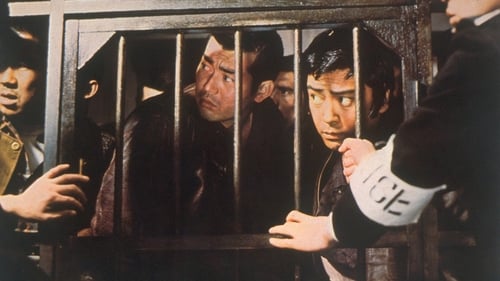
Ryunosuke Nozu
A look at the life of renegade yakuza, Rikio Ishikawa, particularly the years from 1946 to 1950 when his violent antics get him in trouble with his own clan, Kawada, and then with the clan of his protector, Kozaburo Imai. In these years, he can rely on Chieko, a young Tokyo courtesan who gives him shelter. He's banished to Osaka, where he picks up a drug habit. Through it all, he keeps his friends and enemies off balance with unpredictable behavior - and he seems indestructible.
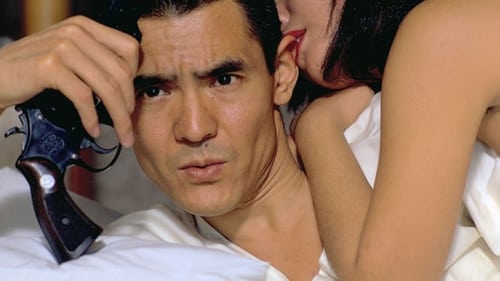
Unokichi Kaizu
The sixth chapter of Jingi Naki Tatakai series With the endless power struggle. The extraordinary combination of Kinji Fukasaku and Bunta Sugawara, along with new ideas and a strong touch of realism, created the sixth movie of the series that describes 'The War of Hiroshima Gangsters' which had lasted almost 30 years after World War II. It can be called the Japanese secret post WWII history. It focuses on the ugly, violent inside struggle of the Yamamori Group of 1959 in Kure City, Hiroshima. Director Kinji Fukasaku, the master of portraying violence and humanity, said "Having making the five previous movies, I found those characters very interesting. So I took a deeper look into them this time." He made this shocking movie with high enthusiasm and revealed the core of gangster's struggle which has never been touched before.

Producer
Set in Shibuya in 1949, this is another film based on real life former yakuza boss Noboru Ando's memoirs.

Story
Set in Shibuya in 1949, this is another film based on real life former yakuza boss Noboru Ando's memoirs.

Set in Shibuya in 1949, this is another film based on real life former yakuza boss Noboru Ando's memoirs.
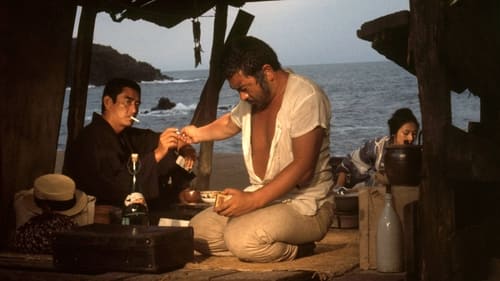
Senzo Hikawa
Дзёкити и Комагэн знакомы с детства, еще их связала тюрьма. Во всем остальном они абсолютно непохожи друг на друга. Комагэн думает о сокровищах, Дзёкити влечет жажда мести. Им явно не по пути.

Вице-адмирал Императорского флота Японии Ониси Такидзиро, блестящий стратег, один из немногих, кто смотрит в будущее. Он знает, что Япония не может выиграть Тихоокеанскую войну. Поскольку военная обстановка становится критической, он предлагает отчаянный план, чтобы вынудить врага договориться о мире и избежать позора сдачи - самоубийственные атаки камикадзе - летчиков-смертников. Это истинная история человека, который организовал разрушительные нападения камикадзе, и трагических последствий его рокового решения...

Based on Kazuo Taoka's autobiography, this film follows a Kobe gangster as he builds the small Yamaguchi-gumi into Japan's largest criminal clan.
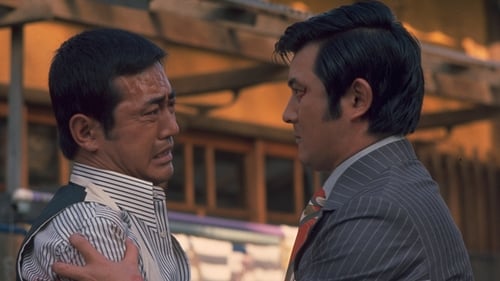
With a Kansai syndicate vying for Tokyo, one man reunites with his roguish half-brother in the midst of negotiations, when all hell breaks loose.
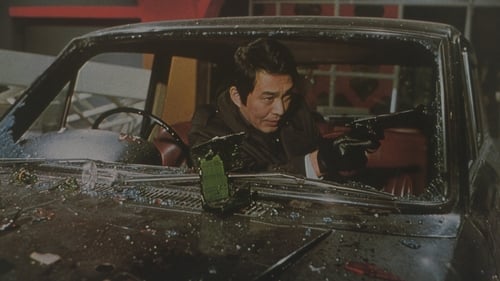
Egawa Koichi
Босс Эгава входил в клан Тогику, но почти все его подручные попали в тюрьму, а после отсидки оказались не нужны Тогику. В компенсацию Эгава получил в подарок бар «Мадрид». Остальные бандиты Эгавы планируют развязать новую войну, в которой они снова окажутся нужны.

Third film in the series.
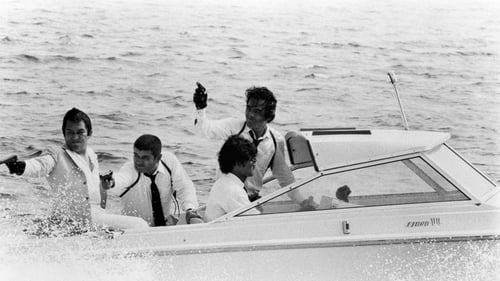
Original Story
This biopic of notorious yakuza-turned-actor Noboru Ando focuses on the days leading to his arrest after the shooting of businessman Hideki Yokoi.

This biopic of notorious yakuza-turned-actor Noboru Ando focuses on the days leading to his arrest after the shooting of businessman Hideki Yokoi.
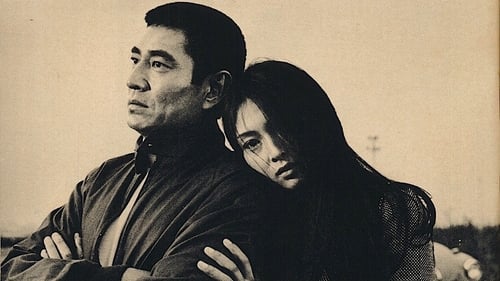
Mitsuo Kurata

Iketani Sanro
After a desperate gang of ex-soldiers and gamblers meet in a fistfight in occupied Ginza they decide to make the neighborhood their own.

Set loose in a postwar world with no rules, an ex-juvenile delinquent begins building the most powerful gang in Tokyo's glittering Shibuya ward.

The ninth and final film in the Contemporary Tales of Chivalry series.
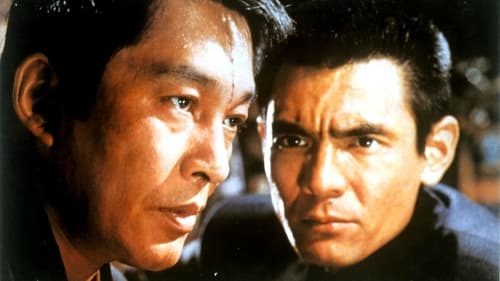
Original Story
In the gaudy world of 1930s Shinjuku, a violent youth known as Bakudan Match tangles explosively with prostitutes, politicians and the police.

In the gaudy world of 1930s Shinjuku, a violent youth known as Bakudan Match tangles explosively with prostitutes, politicians and the police.
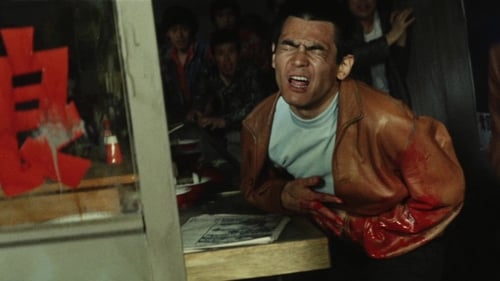
Boss Yato
Исаму Окита с малых лет был предоставлен самому себе, его школой была улица. Он вырос и стал предводителем банды. Во время одной из разборок он с ножом нападает на соперников и в результате садится в тюрьму. Выйдя на свободу, Исаму обнаруживает, что мир слегка изменился, но методы бандита остались такими же, и он намерен отвоевать свою территорию.

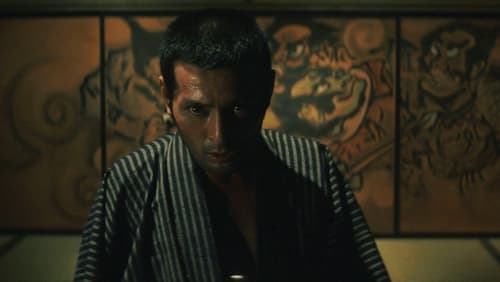
Gunjiro Ozeki
В 1928 году в честь восшествия на престол императора Хирохито в Японии была объявлена тотальная амнистия. Сотни опасных головорезов, обреченных по приговору суда гнить в тюремных застенках на протяжении долгих десятилетий, были выпущены на свободу и смогли вернуться в свои родные места. Для одних эта неожиданная свобода стала счастьем, для других — настоящим проклятием. Сэйдзи Ивахаси из клана Энокия получил десять лет за убийство босса клана Канно. Вернувшись после амнистии домой, он обнаруживает, что за время его отсутствия новый босс Канно полностью подмял под себя клан Энокия. Сэйдзи прекрасно понимает, что уже давно не принадлежит этому кругу и его возвращения никто не ждал. Он осознает, что ему нужно побыстрее собирать вещи и ехать в Маньчжурию воплощать свои мечты о мирной жизни. Но честь не позволяет Сэйдзи сделать это.

Former inmate Katsuji gets involved in the horse gambling business while lending a helping hand to a ranch operator.
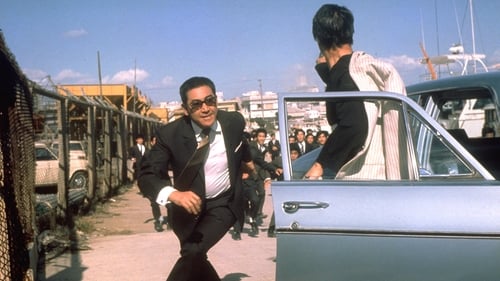
Shark
A yakuza gang gets driven out of Yokohama by a big gang from Tokyo. They relocate to Okinawa to violently start over.

Third and last movie in the Yakuza Hijoshi trilogy.

Second delivery in the "Yakuza Hijoshi" series. The protagonist, played by Ando Noboru, is torn between the organization and his old friends.
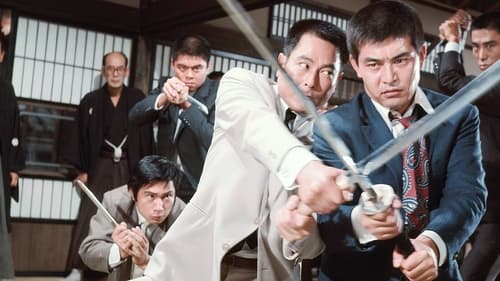
Ryukichi Koiwa
When Keiji Takama returns to Nagasaki, he finds many changes. The rights of the entertainment field that had been held by his family have been taken over by the Matsui Group, a new gangster setup. So he becomes head of the Takama Group to regain lost territory. With the cooperation of all the Bosses from Tokyo to Nagasaki, who had known his father, Keiji recovers the rights to put on shows at the City Hall. As he had feared, however, Matsui begins to interfere with his plans. Keiji's men are furious, but he knows better than to take up the cudgels with Matsui at this important time. Whatever Matsui does, Keiji goes one better. Frustrated and bitter, Matsui calls in the help of Koiwa, a killer. Now, having tried his best to oust Keiji but finding that he is made of sterner stuff than he had counted on, he decides to have Koiwa do away with him for good.

After the war, Kijima (Bunta Sugawara) returns to Tokyo where he meets Ôba (Noboru Andô), an Ex-Kamikaze pilot, and the two ruffians gather hooligans to join their group. In Ginza, the Togawa gang have taken over Sakurada's territory. After several fights Kijima and Ôba gain control of the territory by chasing out the notorious Togawa Group in the name of Sakurada. But Kijima is arrested for assaulting an American soldier. A few years pass. Kijima has served his prison term and the sears of war have been erased from Ginza. Ôba is now president of a company specializing in collection of bad debts, cheque frauds and everything that means money. People call their organization the “Private Police,” and Kijima begins to work for Ôba. Now the Takegami gang waits a chance to seize the Ginza territory.

Story
Authentic action drama of modern gangsters.

Naoji Iwamoto
Authentic action drama of modern gangsters.
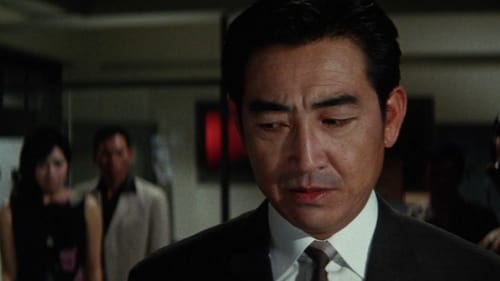
Ooba
Coming out of jail and hoping for a quiet life, Yokohama yakuza has to take the lead of his gang after the death of his boss. His small group is is taken in a crossfire between a big yakuza group from Osaka at war with the Tokyo alliance for the control of the city. He tries to keep to the old yakuza code but he is no match for the new thugs who live and fight without honor.

Mamoru Sagara
A gangster named Sagara killed a broker at the request of a friend named Oba, was arrested and spent eight years in prison. Now released, he wants to find out who squealed on him.

The hero tries to unite various gangs.

Todoroki
Convict son revenges innocent father's death.
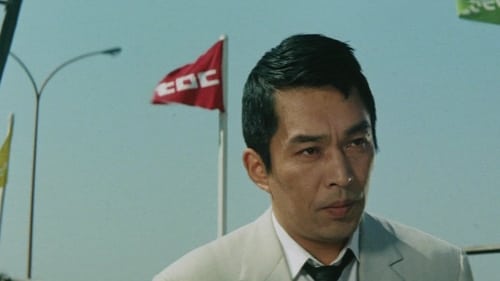
Shinsuke Gunji
Three men vs. gangsters in a fight involving smuggled gold.
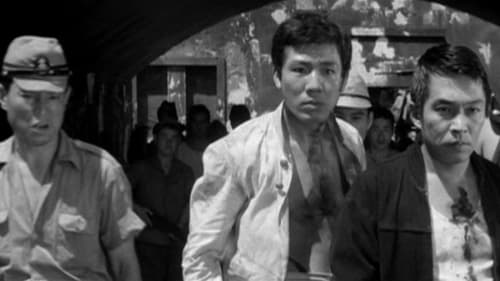
The 11th and final film in the Gang series. Most of the films had different directors and cast, and were only connected by the title and Toei's marketing department. Unlike the early entries, which were jazzy capers, this final entry is a prototype jitsuroku yakuza film. Just back from the war, Noboru Ando leads a gang of war vets turned gangster in the US occupied streets of Tokyo. They get into a conflict with a Chinese gang as well as the military police. Tetsuro Tamba appears as a police chief trying to bring peace to the streets; 1st wave pinky violence star Masumi Tachibana is a girl grieving his dead gangster father.

Kenji Kunisaki
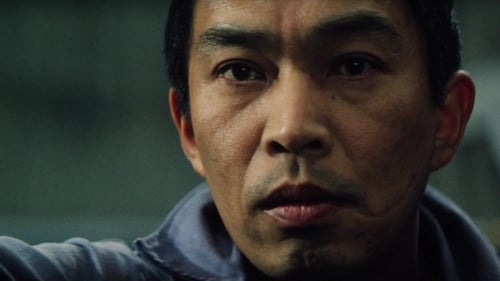
A former soldier is caught working the black market and sent to prison while his partner escapes and goes on to become a gangster, but their paths cross again as they both fall in love with the same woman.

A hobo exposes the misdeeds of a new yakuza.
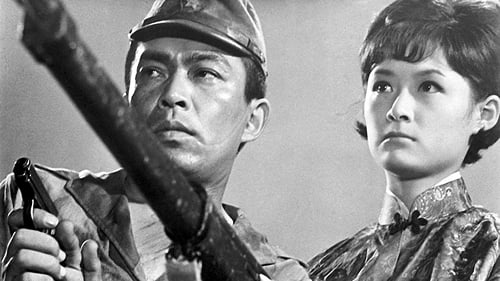
Following “A Man's Face Shows His Personal History”, this movie is the second of the “Trilogy of the Wartime Generation”. It is a war drama set in China and depicts battles over opium.

Shuichi Amamiya
Also known as "History of a Man’s Face" and "By a Man's Face Shall You Know Him" . Immigrant gangs terrorize a Japanese town with their threats, loud jazz, and tasteless fashion sense, and only the tough but suave Dr. Amamiya (Ando) can stop them, as long as he gets rid of his silly peace-loving ideals.

Shin Nanjô

Shochiku's popular series of gang films, this one has the hero returning from prison bent on revenge. He runs into Chinese hoodlums, blackmailers and gold-smugglers. But he also aids and abets young lovers yet, despite his help, their love ends in tragedy and he tracks down his prey in Kobe.

Original Story
Based on the autobiography of Noboru Andô .

Based on the autobiography of Noboru Andô .
